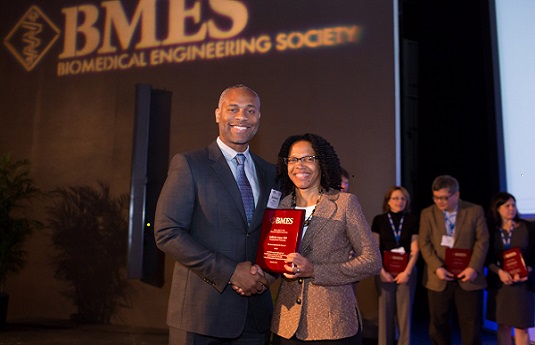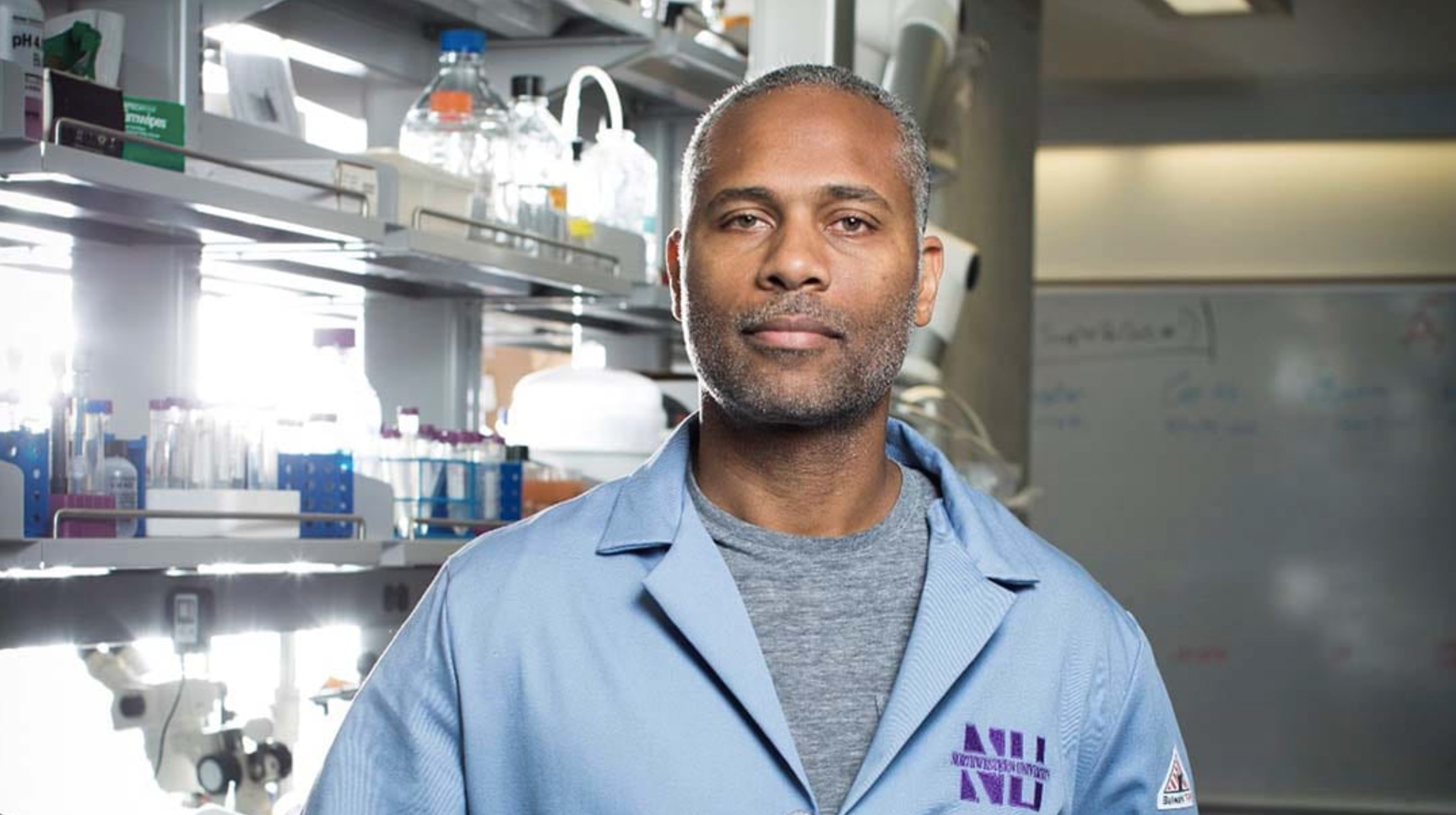Dr. Guillermo Ameer is the Daniel Hale Williams Professor of Biomedical engineering in the McCormick School of Engineering, Professor of Surgery in the Feinberg School of Medicine at Northwestern University, and the director of the Center for Advanced Regenerative Engineering (CARE). Dr. Ameer joined the Northwestern faculty in 2001, became the department’s first member of color, and has since developed an interdisciplinary research team that explores biomaterials, nanotechnology, and regenerative and tissue engineering. He holds over sixty-five patents for medical devices, many of which have been licensed by companies.
Dr. Ameer was born in Panama and migrated to the United States in 1988. After settling in New York City, he eventually moved to Texas, earning a bachelor’s degree in chemical engineering from the University of Texas at Austin. Before deciding on chemical engineering as his major, Ameer wanted to be an electrical engineer. However, the flexible and diverse chemical engineering applications attracted him the most. Dr. Ameer then obtained a Doctor of Science degree in chemical engineering from the Massachusetts Institute of Technology (MIT), where he studied with Dr. Robert Langer. As the largest biomedical research lab in the world, the vastly interdisciplinary space allowed Ameer to investigate the many ways chemical engineering could be applied to healthcare. While in Dr. Langer’s lab, Ameer discovered stem cell and tissue engineering research through friends and colleagues. Through that initial exposure, Dr. Ameer became fascinated with developing engineering-based strategies to meet the demands of the medical field, particularly that of a global tissue and organ shortage. Research in this interdisciplinary field has since enabled clinicians to offer better healthcare. After receiving his doctorate, Ameer remained at MIT for his postdoctoral studies while working in the Department of Pathology at Harvard University. In addition to tissue and regenerative engineering and developing patient-specific medical devices, Dr. Ameer’s current research focuses on developing polydiolcitrates, which are multifunctional biodegradable citrate-based biomaterials used to promote tissue regeneration.

Within the last decade, regenerative engineering has flourished as a new field that integrates advances in materials science, translational medicine, and physical and chemical biology. In 2018, Ameer established the Center for Advanced Regenerative Engineering (CARE), a unique and interdisciplinary initiative to bring clinicians, academic and industry researchers, and engineers together to create regenerative healthcare solutions. The center also provides a two-year pre-doctoral training program that enables students to develop engineering strategies for healthcare practices.
Dr. Ameer has been awarded many accolades celebrating his contributions to the field. In 2003, he was named an innovator under 35 by the MIT Technology Review for inventing biorubbers, a material potentially to be used to replace damaged heart or lung tissue, during his postdoctoral studies. More recently, Ameer was elected as a Fellow of the American Institute of Chemical Engineers (AIChE) and the National Academy of Inventors in 2017 and 2019, respectively. In 2021, he was elected to the National Academy of Medicine, and in 2022 he was awarded the Technology Innovation and Development Award by the Society for Biomaterials and the Innovation and Commercialization Award from the Tissue Engineering and Regenerative Medicine International Society-Americas (TERMIS-NA).

